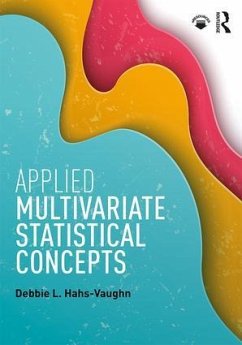
Thomas F Pettigrew
Broschiertes Buch
Contextual Social Psychology
Reanalyzing Prejudice, Voting, and Intergroup Contact
Versandkostenfrei!
Versandfertig in über 4 Wochen

PAYBACK Punkte
30 °P sammeln!




This compelling book offers insight into the advantages of contextual social psychology, applying these analyses to critical topics such as prejudice, far-right voting patterns, relative deprivation, and intergroup contact.
Thomas F. Pettigrew, PhD, is research professor of social psychology at the University of California, Santa Cruz. He received his BA from the University of Virginia, and his MA and PhD in social psychology from Harvard. Dr. Pettigrew has spent more than 6 decades studying intergroup relations, prejudice, meta-analyses of intergroup contact and relative deprivation while publishing more than 400 journal articles and books. He has received dozens of honors and awards, including a Guggenheim Fellowship, a Senior Fulbright Fellowship, the University of California’s Distinguished Emeriti Panunzio Award, Harvard Graduate School’s Centennial Medal, the Lewin Prize, two Allport Intergroup Research awards, the Scientific Impact Award, the Cox-Johnson-Frazier Award for race relations research, the Cooley-Mead Award for social psychology, and the Spivack Award for Race Research.
Produktbeschreibung
- Verlag: American Psychological Association (APA)
- Seitenzahl: 271
- Erscheinungstermin: 16. Februar 2021
- Englisch
- Abmessung: 228mm x 153mm x 17mm
- Gewicht: 414g
- ISBN-13: 9781433832949
- ISBN-10: 1433832941
- Artikelnr.: 59080848
Herstellerkennzeichnung
Libri GmbH
Europaallee 1
36244 Bad Hersfeld
gpsr@libri.de
Für dieses Produkt wurde noch keine Bewertung abgegeben. Wir würden uns sehr freuen, wenn du die erste Bewertung schreibst!
Eine Bewertung schreiben
Eine Bewertung schreiben
Andere Kunden interessierten sich für











